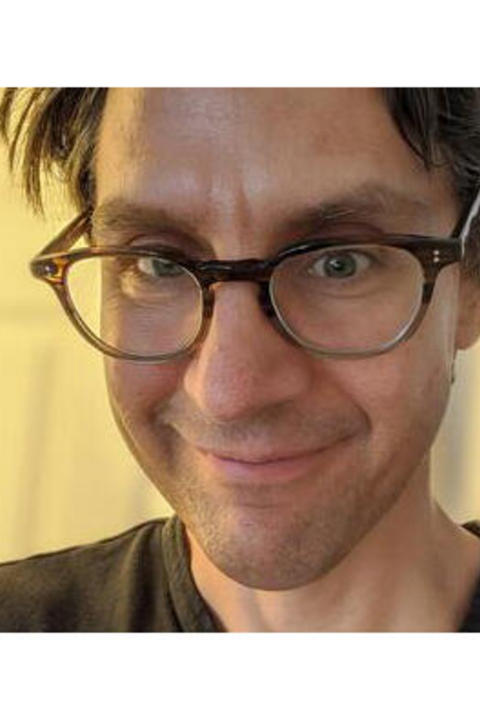Paul Kockelman is Professor of Anthropology at Yale University. He has undertaken extensive ethnographic and linguistic fieldwork among speakers of Q’eqchi’ (Maya) living in the highlands of Guatemala. For the last decade or so, among other topics, he has been working on the tense and traumatic coupling between the interpretive grounds of humans and the algorithmic models of machines.
He is the author of the following books:
2025 Mathematical Models of Meaning (MIT Press)
A dynamics systems approach to possible world semiotics.
2024 Last Words: Large Language Models and the AI Apocalypse (Prickly Paradigm Press)
On artificial intelligence, ChatGPT, and the obsolescence of the human species.
2022 The Anthropology of Intensity (CUP)
On language, culture, and the environment.
2020 Kinds of Value (Prickly Paradigm Press)
An experiment in modal anthropology.
2017 The Art of Interpretation in the Age of Computation (OUP)
On meaning, mediation, and new media.
2016 The Chicken and the Quetzal (Duke University Press)
On human-animal relations and environmental interventions.
2013 Agent, Person, Subject, Self (OUP)
On ontology, interaction, and infrastructure.
2010 Language, Culture, and Mind (CUP)
On other minds, affect, and intentionality.
He is the editor of two collections of essays:
2017 Distributed Agency (OUP)
With Nick Enfield.
2013 The Cambridge Handbook of Linguistic Anthropology (CUP)
With Nick Enfield and Jack Sidnell.
His essays range over a variety of topics, including:
Artificial Intelligence, Cognitive Science, and Science and Technology Studies
2020 The Epistemic and Performative Dynamics of Machine Learning Praxis
Signs and Society
2013 The Anthropology of an Equation
Hau: Journal of Ethnographic Theory
2013 Huckleberry Finn Takes the Turing Test
Language and Communication
2010 Enemies, Parasites, and Noise
Journal of Linguistic Anthropology
2007 Agency: The Relation between Meaning, Power, and Knowledge
Current Anthropology
Meaning and Materiality (or Culture and Nature)
2024 Ontology and Worlds: The Price of Being Free
Current Anthropology
2020 Threshold
Cultural Anthropology
2016 Grading, Gradients, Degradation, and Grace
Hau: Journal of Ethnographic Theory
2011 Biosemiosis, Technocognition, and Sociogenesis
Current Anthropology
2016 Meeting the Universe Two-Thirds of the Way: Witchful Thinking
Signs in Society
2012 The Ground, The Ground, The Ground: Why Archaeology is so ‘Hard’
Yearbook of Comparative Literature
Grammatical Categories and Discourse Practices
2020 Dual Categories, and their Doubling, in Q’eqchi’ (Maya)
International Journal of American Linguistics
2019 Comparison and Degree in a Mayan Language
International Journal of American Linguistics
2009 Inalienable Possession as Grammatical Category and Discourse Pattern
Studies in Language
2009 The Complexity of Discourse
Journal of Quantitative Linguistics
2003 The Interclausal Relations Hierarchy in Q’eqchi’ (Maya)
International Journal of American Linguistics
Time and Temporality
2017 Time and Replacement among the Maya
Journal de La Société des Américanistes
2013 Semiotic Technologies, Temporal Reckoning, and the Portability of Meaning
Anthropological Theory (Co-authored with Anya Bernstein)
2009 Meaning and Time: Translation and Exegesis of a Mayan Myth
Anthropological Linguistics
Relatively Unhinged Ravings about Difficult-to-Fathom Phenomena
2017 Gnomic Agency
Distributed Agency
2011 A Mayan Ontology of Poultry
Language in Society
2010 Value is Life Under a Description
Anthropological Theory
2006 A Semiotic Ontology of the Commodity
Journal of Linguistic Anthropology
1999 Poetic Function and Logical Form, Ideal Languages and Forms of Life
Chicago Anthropology Exchange
Finally, he is the author of one (admittedly crappy, but mercifully short) poem:
Sir Isaac Newton popped out his eye
To see what lay behind it;
And lucky him the optic nerve
Stretched so he wasn’t blinded.
All that said, he really likes the essay form, the diagrammatic imaginary, dad jokes, and teaching more generally. Most of his work may be found at www.envorganism.org.
Contact Info
10 Sachem Street, Room 311
